While American cuisine is celebrated for its diversity and flavor, some beloved staples come with hidden health pitfalls. From fast food to pantry favorites, certain foods can pose surprising risks to your well-being. We spotlight 13 common American foods that, despite their popularity, may not be as wholesome as you think.
1. Fast Food Burgers
These popular menu items might satisfy a craving but often come with hidden health dangers. Loaded with saturated fats, sodium, and calories, they’re a quick ticket to dietary trouble. Many fast food burgers contain preservatives and artificial ingredients, making them an unhealthy choice. Additionally, the large portion sizes encourage overconsumption.
It’s wise to enjoy these sparingly and opt for healthier alternatives when possible. Choosing a burger with leaner meat, whole-grain buns, and plenty of veggies can help mitigate some of the negative impacts. Pairing with a side salad instead of fries also makes for a smarter meal.
2. Fruit Juice
Although fruit juice seems like a healthy choice, it often harbors more sugar than you’d expect. Many store-bought varieties are loaded with added sugars and lack the fiber found in whole fruits. This can lead to spikes in blood sugar and potential weight gain. Diluting juice with water or opting for freshly squeezed versions can reduce sugar intake.
Consuming whole fruits instead is a healthier alternative, providing essential nutrients and fiber. Always check labels for added sugars and choose juices with no extra sweeteners. Moderation and mindful choices can lead to better health outcomes.
3. Potato Chips
These crunchy snacks are a favorite but come with more risks than rewards. High in unhealthy fats and sodium, potato chips can contribute to heart disease and high blood pressure. Their addictive nature often leads to overeating. Opting for baked versions or making homemade chips with minimal oil can be healthier.
Consider swapping them for air-popped popcorn or raw veggies for a nutritious crunch. Reading ingredient lists is crucial to avoid harmful additives. Enjoying chips occasionally is fine, but balancing with healthy choices ensures better health. Making informed snack decisions is key.
4. Energy Drinks
Marketed as quick energy fixes, these beverages pack a punch of sugar and caffeine. Energy drinks can lead to increased heart rate and blood pressure, posing risks to cardiovascular health. The high caffeine content may cause jitteriness and insomnia. Choosing natural sources of energy, like a balanced diet and adequate sleep, is preferable.
For those needing a boost, green tea or black coffee in moderation provides caffeine without added sugars. Awareness of the ingredients and their effects is crucial. Staying informed and making healthier beverage choices can lead to better long-term health.
5. Sugary Soft Drinks
Often enjoyed with meals, these drinks are packed with sugars that contribute to obesity and metabolic issues. Regular consumption can lead to tooth decay and increased risk of type 2 diabetes. Opting for water, flavored seltzer, or herbal teas can significantly reduce sugar intake.
Awareness and moderation are key to making healthier drink choices. For those craving sweetness, naturally flavored water or iced herbal teas offer refreshing alternatives. Reducing sugary drink consumption not only benefits physical health but also supports dental well-being. Choosing wisely can have a profound impact on overall wellness.
6. Frozen Dinners
Convenience often comes at a cost, as these meals are loaded with sodium and preservatives. While easy to prepare, they can lack essential nutrients and be high in unhealthy fats. Reading labels for nutritional content is essential when selecting frozen meals. Incorporating fresh vegetables or a side salad can enhance nutritional value.
Preparing homemade versions with fresh ingredients offers a healthier alternative. Balancing convenience with nutrition ensures a well-rounded diet. Making informed choices about meal ingredients can lead to healthier eating habits and overall wellness. Opt for freshness when feasible.
7. Processed Meats
These are often laden with preservatives and sodium, making them a less desirable option for regular consumption. Processed meats include items like hot dogs, sausages, and deli meats, which can increase the risk of certain cancers. Opting for fresh, lean meat or plant-based alternatives is a healthier choice.
When consuming processed meats, moderation is crucial, along with choosing options labeled as low-sodium. Incorporating more plant-based proteins can also enhance your diet. Always stay informed about ingredient lists and opt for natural choices when possible. Prioritizing health is paramount.
8. Ice Cream
This beloved treat often hides a hefty amount of sugar and unhealthy fats. While delightful, frequent indulgence can contribute to weight gain and high cholesterol. Opting for smaller servings or low-fat alternatives can mitigate some health impacts. Enjoying ice cream as an occasional treat rather than a daily dessert is advisable.
Reading labels for lower sugar and fat content helps in making better choices. Homemade versions with natural ingredients can offer a healthier option. Balancing enjoyment and health-conscious decisions can lead to better dietary habits. Moderation remains key.
9. Frozen Pizza
While convenient, frozen pizzas often lack nutritional value, being high in sodium and unhealthy fats. These can contribute to weight gain and cardiovascular issues. Making pizza at home with fresh ingredients provides a healthier and more satisfying meal. Opting for whole-grain crusts and plenty of veggies enhances nutritional content.
Moderation and mindful ingredient choices are important when consuming frozen pizza. Checking labels for healthier options can guide better purchasing decisions. Balancing convenience with health benefits encourages a more nutritious diet. Exploring alternatives can lead to positive dietary changes.
10. Microwave Popcorn
Popcorn is a beloved snack, but the microwaved kind often contains harmful additives. Artificial flavors and trans fats in some versions can pose health risks. Choosing air-popped popcorn or stovetop versions made with healthy oils offers a better option. Adding natural seasonings instead of artificial butter can enhance flavor healthily.
Ensuring the ingredient list is simple and free from harmful additives is important. Enjoying popcorn in its healthier forms allows for guilt-free snacking. Making informed choices about snack ingredients contributes to a more balanced diet. Opt for simplicity and health.
11. Granola Bars
These are often marketed as healthy snacks but can be packed with sugars and artificial ingredients. Reading labels to check for real, wholesome components is crucial. Choosing bars with minimal added sugars and high fiber content is advisable.
Preparing homemade granola bars allows for control over ingredients and sugar levels. Opting for options rich in nuts and fruits provides more nutrients. These snacks should complement, not replace, a balanced diet. Making conscious choices about snack ingredients can lead to better health outcomes. Emphasizing natural, wholesome ingredients is beneficial.
12. Artificial Sweeteners
Used as sugar substitutes, these can have potential long-term health effects. Concerns include altering gut bacteria and impacting metabolism. Opting for natural sweeteners like honey or maple syrup can be healthier options. Moderation is vital, as excessive use of any sweetener isn’t ideal.
Staying informed about potential effects and making mindful choices is important. Exploring alternative ways to sweeten foods, such as using fruits, enhances diet quality. Assessing personal health needs and preferences plays a role in sweetener choices. Making informed decisions contributes to better health habits.
13. Canned Soup
Convenient and comforting, canned soups often contain high levels of sodium and preservatives. This can elevate blood pressure and affect heart health. Opting for low-sodium versions or homemade soups can significantly reduce these risks. Adding fresh vegetables or herbs to enhance flavor and nutrition is beneficial.
Reading labels carefully helps in selecting healthier options. Balancing convenience with nutritional needs leads to better dietary choices. Incorporating homemade soups into meal plans supports overall wellness. Making mindful and informed choices about food ingredients is essential for maintaining health.


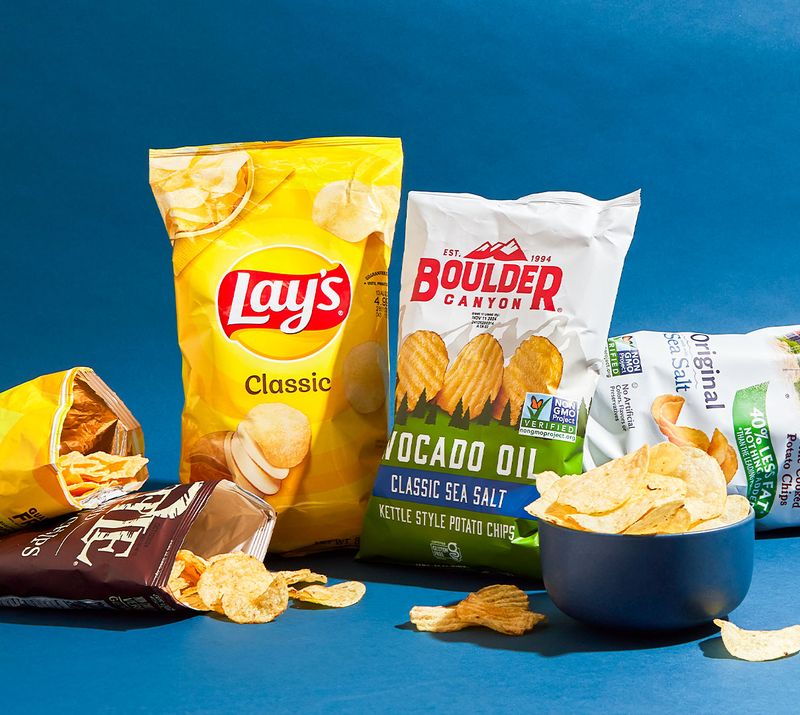


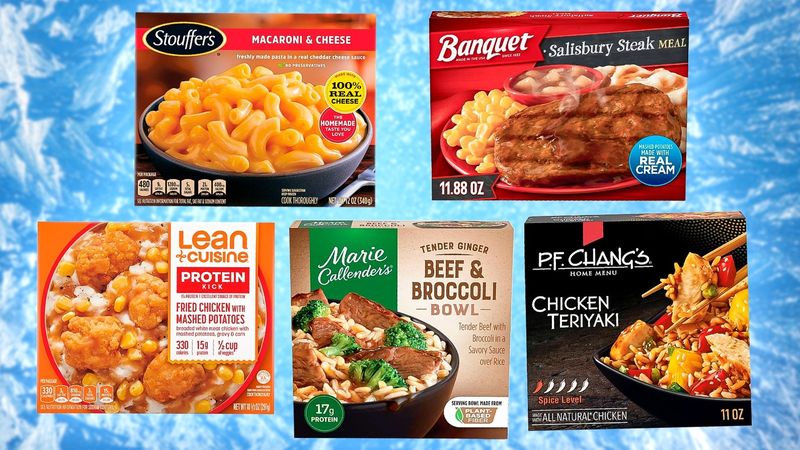


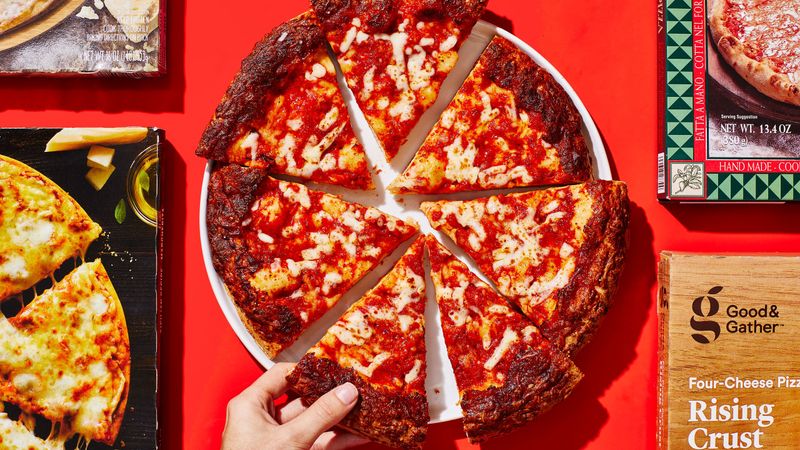
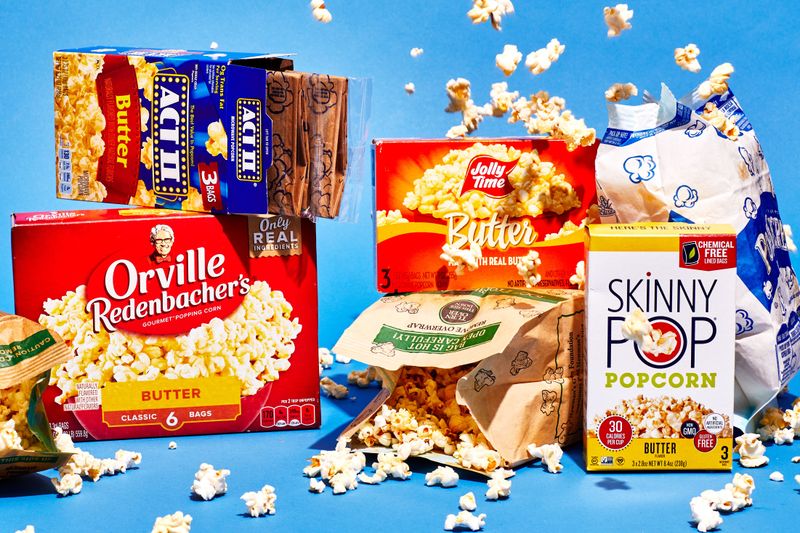
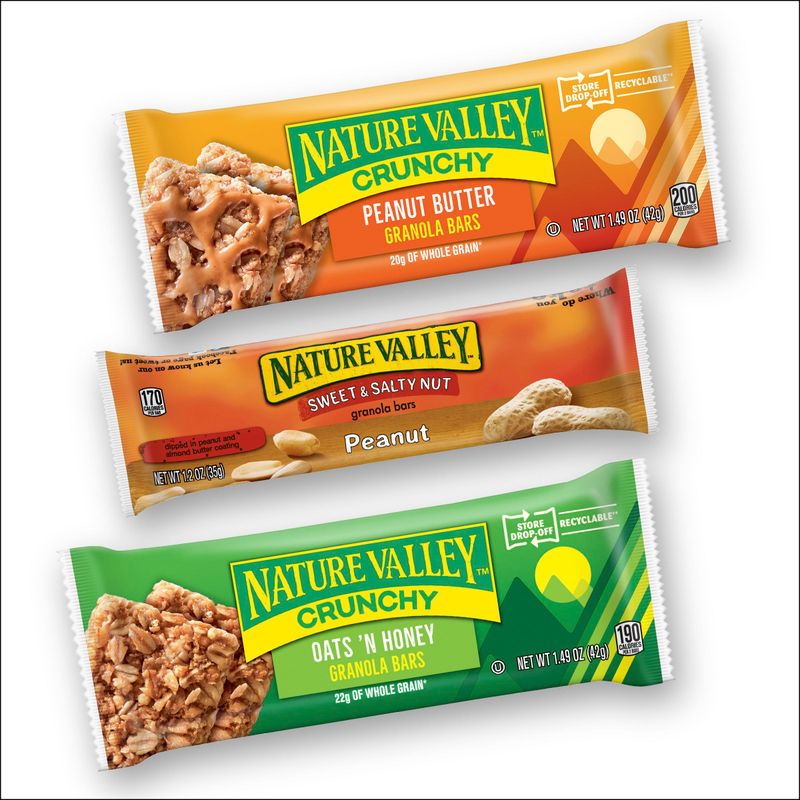
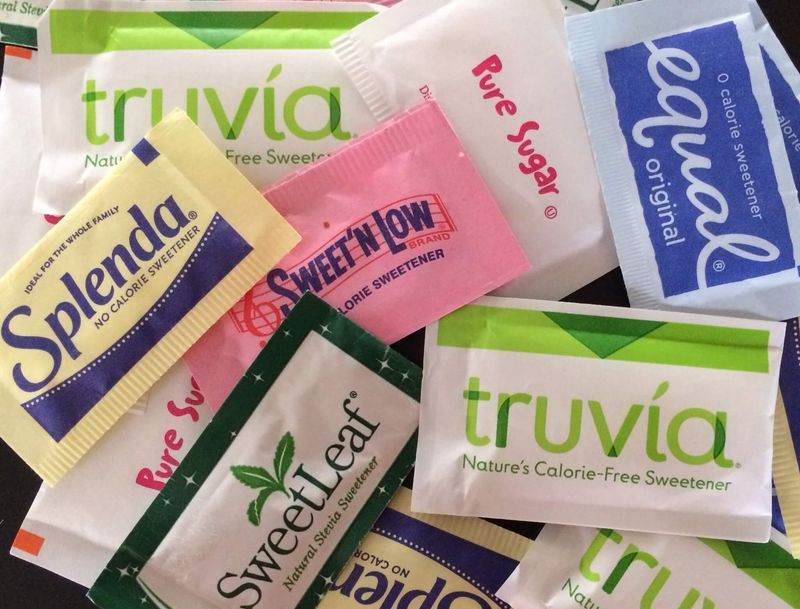
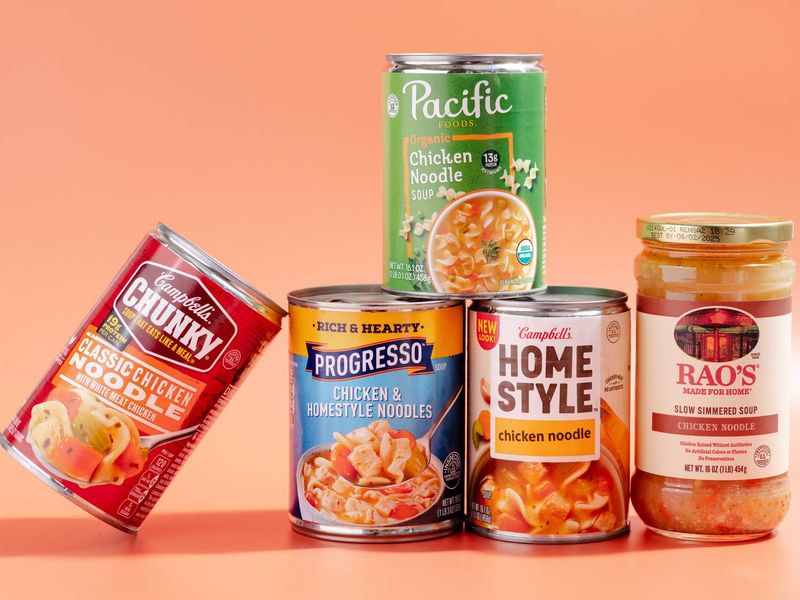
Leave a comment